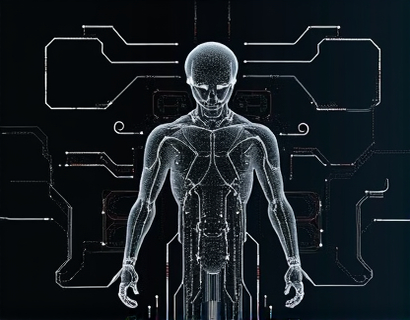AI Certification Innovations: Validating Skills for Digital Success
In the rapidly evolving digital landscape, the importance of acquiring and validating skills in artificial intelligence (AI) cannot be overstated. As AI continues to transform industries and create new job opportunities, professionals and students are turning to specialized certifications to demonstrate their expertise and stay competitive. This article explores the innovations in AI certification, focusing on how these credentials are reshaping career development and educational pathways.
The Need for Specialized Accreditation
The tech industry's rapid advancement has led to a surge in demand for AI professionals. However, the breadth and depth of AI knowledge required for various roles necessitate more than just a general understanding. Specialized accreditation addresses this need by offering targeted certifications that validate specific skills and knowledge areas. These credentials are designed to reflect the complexities of AI and ensure that individuals possess the necessary competencies to excel in their chosen paths.
Enhancing Professional Credibility
Obtaining an AI certification is more than just a piece of paper; it is a testament to an individual's dedication and expertise. These certifications enhance professional credibility by providing concrete evidence of one's abilities. Employers increasingly recognize these credentials as reliable indicators of a candidate's potential to contribute effectively to their teams and projects. In a field where technology evolves rapidly, having a recognized certification can set professionals apart from the competition.
Maximizing Career and Educational Potential
The value of AI certifications extends beyond immediate job placement. These credentials open doors to a wide range of career opportunities, from entry-level positions to advanced roles in research and development. For students, pursuing AI certification can be a strategic move to enhance their educational portfolio, making them more attractive to universities and potential employers alike. The skills gained through certification programs are often aligned with industry needs, ensuring that graduates are well-prepared for the challenges ahead.
Comprehensive Learning Pathways
Leading AI certification platforms offer structured learning pathways that guide candidates through a series of tasks and educational milestones. These pathways are designed to build a solid foundation in AI concepts and practical applications. Each milestone represents a significant step in the learning journey, ensuring that candidates not only understand theoretical principles but also apply them in real-world scenarios. This comprehensive approach helps learners develop a deep and practical understanding of AI technologies.
Task-Based Validation
One of the key innovations in AI certification is the shift towards task-based validation. Instead of relying solely on theoretical exams, these programs assess candidates through practical tasks that simulate real-world challenges. This approach ensures that certified individuals can demonstrate their ability to apply AI concepts effectively. Task-based validation not only tests knowledge but also evaluates problem-solving skills, creativity, and adaptability—qualities essential for success in the tech industry.
Personalized Learning Experiences
Modern AI certification platforms leverage advanced technologies to provide personalized learning experiences. Adaptive learning algorithms tailor the content to each learner's strengths and weaknesses, ensuring that the educational journey is both efficient and effective. This personalized approach helps candidates focus on areas where they need improvement, accelerating their path to certification. Additionally, interactive elements such as simulations and hands-on projects enhance engagement and retention of complex AI concepts.
Enhancing Educational Credibility
The credibility of educational institutions is increasingly tied to the relevance and quality of their programs. AI certifications play a crucial role in this regard by validating the skills and knowledge acquired through these programs. Accredited certifications serve as a seal of approval, indicating that the education provided meets industry standards. This enhances the overall credibility of the educational institution and the value of its programs in the eyes of employers and students alike.
Industry Recognition
Industry recognition is a significant factor in the value of AI certifications. When a certification is recognized by leading organizations and companies, it carries more weight and is more likely to be valued by potential employers. This recognition is often achieved through partnerships between certification bodies and industry leaders, ensuring that the certifications align with current and future job market demands. Professionals holding these certifications can confidently showcase their credentials, knowing they are backed by reputable entities in the tech industry.
Job Prospects and Career Advancement
The impact of AI certifications on job prospects is profound. Employers are increasingly looking for candidates with proven expertise in AI, and certifications provide a clear and tangible way to demonstrate this expertise. Holding an AI certification can significantly improve one's chances of securing a job in the tech industry, especially in roles that require specialized knowledge. Moreover, these certifications can serve as a stepping stone for career advancement, opening doors to higher-level positions and greater responsibilities.
Continuous Learning and Professional Growth
The field of AI is constantly evolving, and certifications that focus on continuous learning and professional growth are essential. Many certification programs offer ongoing education and updates to ensure that certified professionals stay current with the latest developments. This commitment to lifelong learning not only keeps individuals relevant in the job market but also fosters a culture of continuous improvement and innovation.
Conclusion
AI certifications represent a significant innovation in validating skills and knowledge in the digital age. By offering specialized credentials that reflect practical expertise, these certifications enhance professional credibility, maximize career and educational potential, and ensure alignment with industry needs. As the tech landscape continues to evolve, AI certifications will play an increasingly vital role in shaping the future of work and education.










































